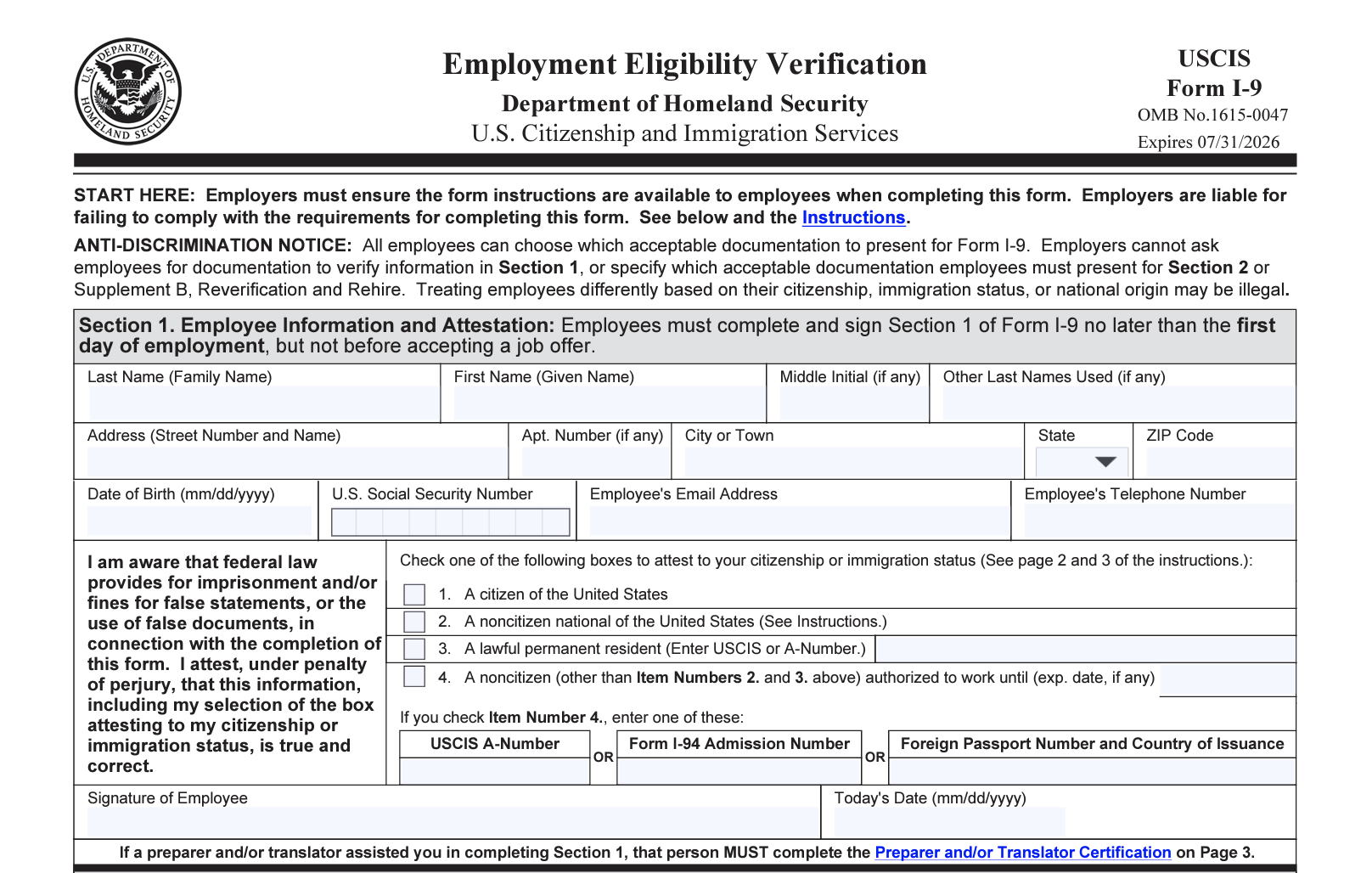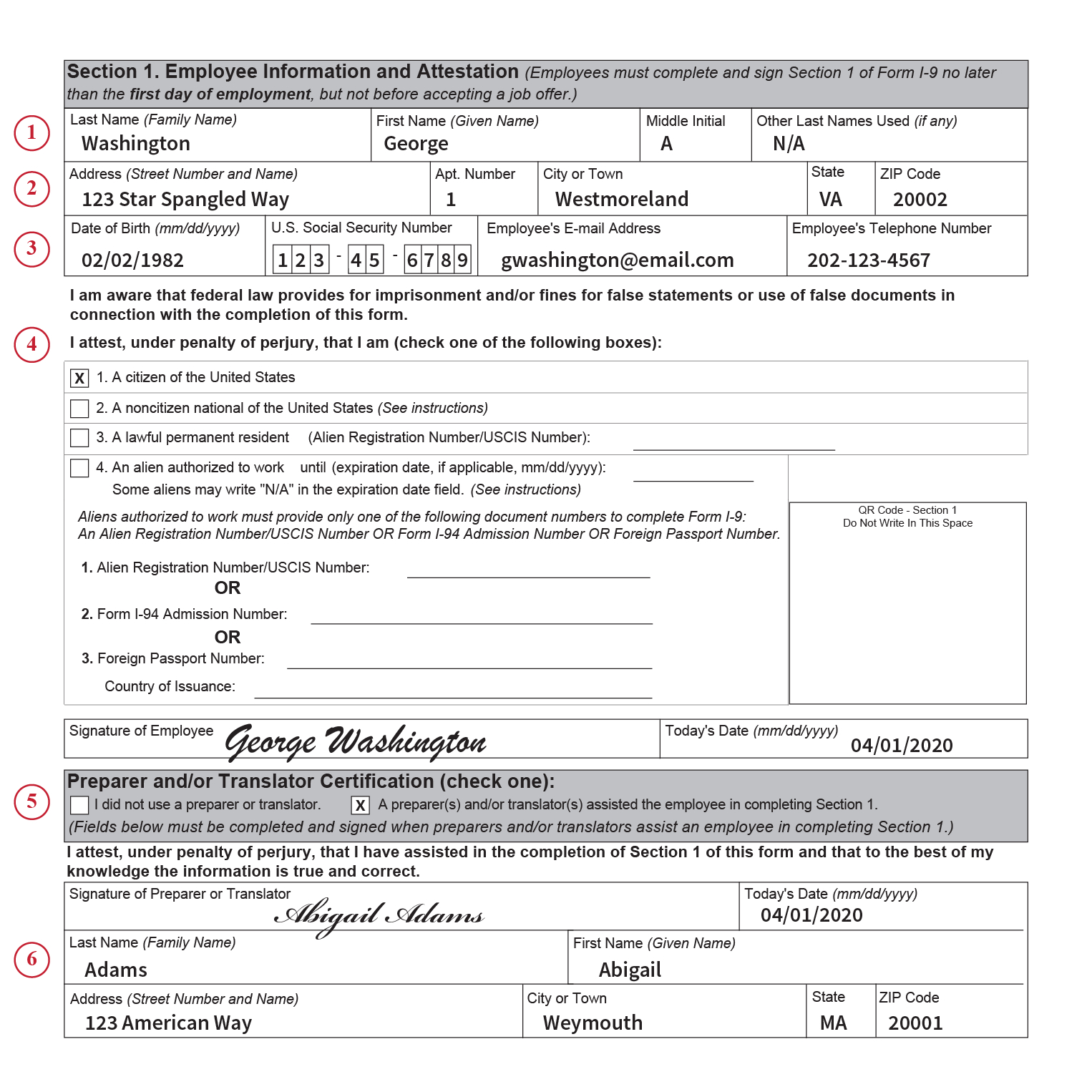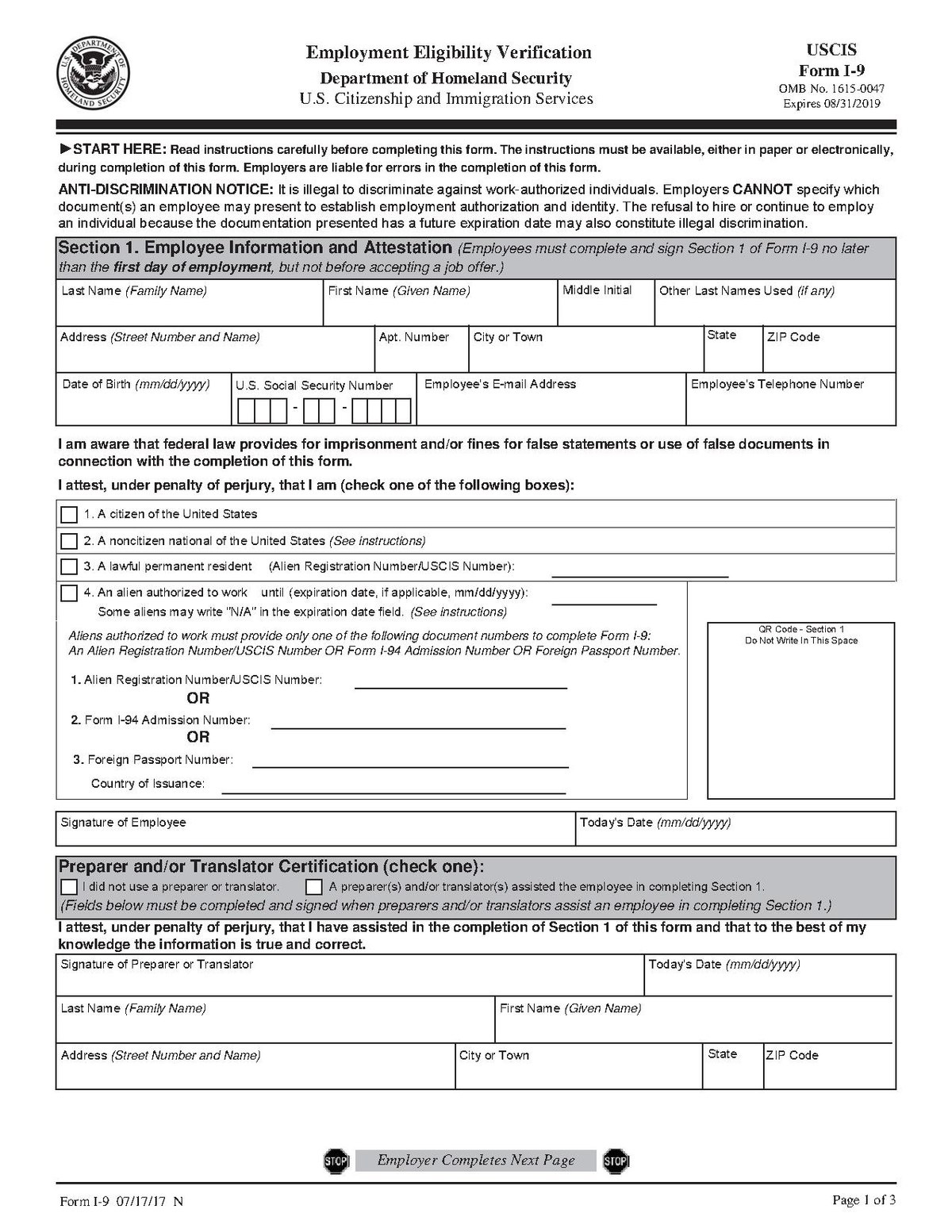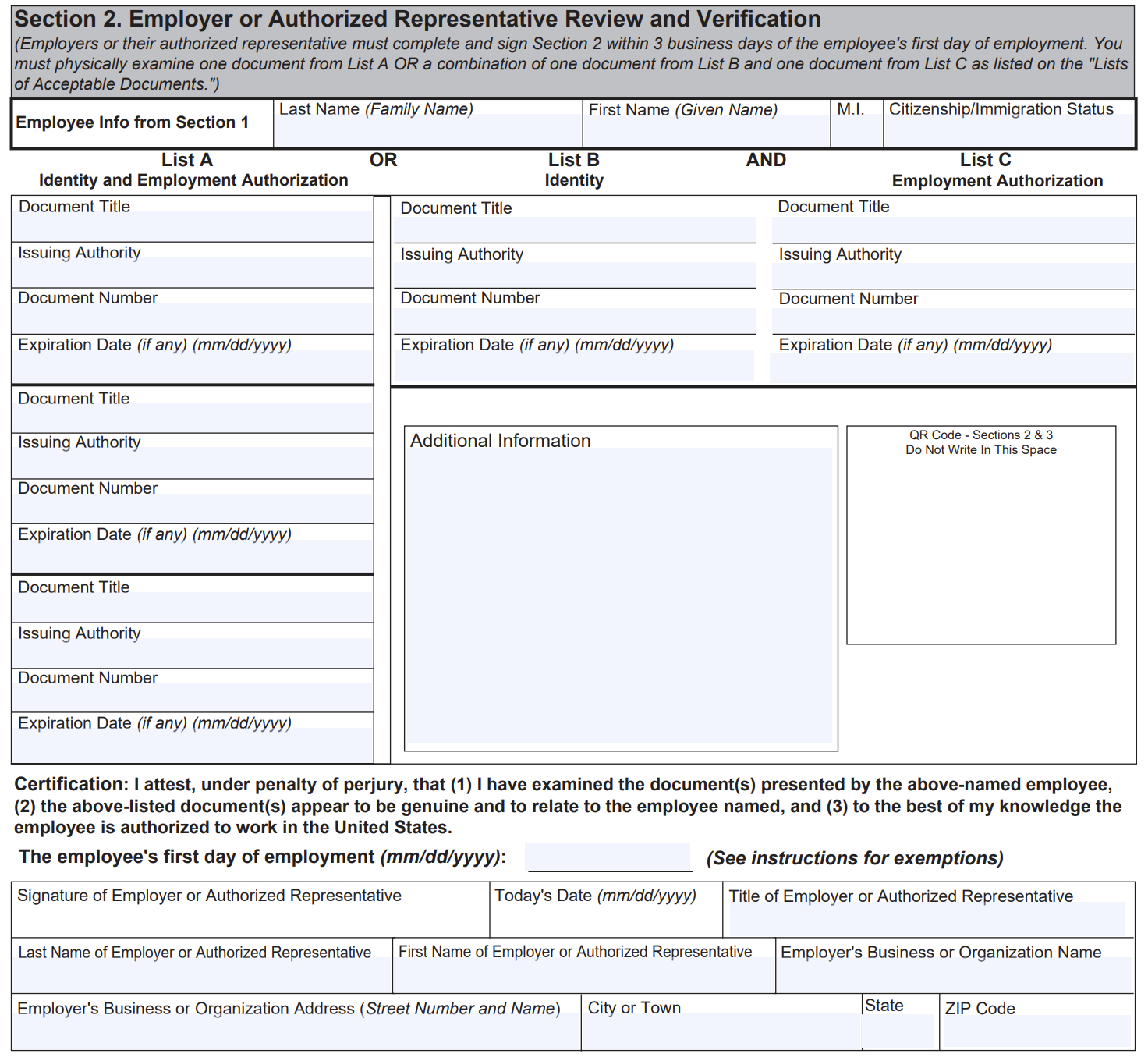The I-9 form, officially known as the Employment Eligibility Verification form, plays a critical role in the U.S. employment process. This form is required by U.S. federal law to verify the identity and employment authorization of individuals hired for employment in the United States. Here’s an in-depth look at why the I-9 form is necessary:
- Compliance with Federal Law: The Immigration Reform and Control Act of 1986 mandates that all U.S. employers, regardless of size or type (including small businesses and non-profit organizations), verify the identity and employment authorization of their new hires. This law applies equally to U.S. citizens and non-citizens alike, ensuring that every employee is legally eligible to work in the United States.
- Preventing Illegal Employment: By requiring the completion of the I-9 form, the federal government aims to prevent illegal employment practices. This form helps ensure that employers are not hiring individuals who do not have the legal right to work in the U.S., thereby upholding the law and maintaining fair employment standards.
- Verification of Work Eligibility: The I-9 form is used to document that an employee is authorized to work in the U.S. Employers must review documents provided by the employee that prove their identity and employment authorization, such as a passport or a combination of a driver’s license and Social Security card.
- Protecting Employers: Completing the I-9 form is also beneficial for employers as it minimizes their risk of facing legal penalties. Employers who fail to properly complete, retain, or make available I-9 forms for inspection can face substantial fines and penalties. The form serves as proof that they have made a good faith effort to ensure their employees are authorized to work in the U.S.
- Prevention of Discrimination: Additionally, the I-9 process is designed to prevent discrimination against employees based on their citizenship, immigration status, or national origin. It ensures that all workers are treated equally in the hiring process.
- Government Recordkeeping and Enforcement: While completed I-9 forms are not submitted to the government, they must be retained by the employer and made available for inspection by U.S. government officials, such as officers from the Department of Homeland Security, the Department of Labor, and the Office of Special Counsel for Immigration-Related Unfair Employment Practices.
The I-9 form is a fundamental part of the U.S. employment landscape, ensuring compliance with the law while protecting both workers’ rights and employers’ interests.
Images Related to Why I9 Form Is Required



